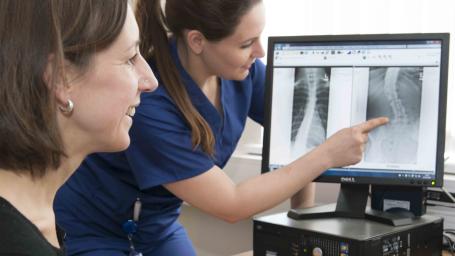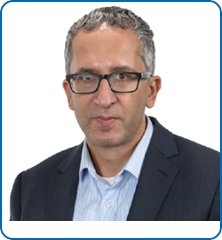Request Information
To make a request for information please complete our online webform at
nhs1.radarhealthcare.net/incident/27/external-form/NBNT/Template_NHS_FOI_Request
To make a request for information please complete our online webform at
nhs1.radarhealthcare.net/incident/27/external-form/NBNT/Template_NHS_FOI_Request
Aerosol generation occurs when tiny droplets of liquid are suspended in the air. Aerosols can be generated during many medical procedures. Some procedures might produce more aerosols than others, and droplets of different sizes, but this is largely unknown at the moment. However, aerosols can carry viruses, like coronavirus, which risks further infections if inhaled by healthcare staff or other patients.
Many medical and surgical guideline groups have made decisions that certain procedures are aerosol generating, based on limited or no evidence. As a result, many procedure lists have been cancelled or are being performed with authorised delays between procedures and full PPE for staff. These delays can add more than 30 minutes to routine procedures such as cataract surgery, pulmonary function tests, and joint replacement surgery, reducing capacity at a time when the NHS is facing a huge backlog that will have an impact on patients.
The AERATOR study will be carried out using specialist equipment in operating theatres and wards to measure real-life aerosol generation in five clinical settings: dental, orthopaedic, respiratory, critical care and ophthalmology. By using specialist equipment, only available at the University of Bristol, the research team will also investigate how long coronavirus survives while airborne and how environmental conditions impact on the infectivity of the virus.
The research will also advise guidelines on the appropriate level of PPE for staff, as well as the length of time aerosol is present for and how it spreads in a real-world clinical setting.
Nick Maskell, Professor of Respiratory Medicine at NBT and Bristol Medical School: Translational Health Sciences (THS), and principal investigator for the project, said:
“A systematic improvement of the evidence would then allow procedures that are truly low risk to go ahead without the need for patient testing, air-cycling protocols or extensive PPE. Our study will ensure that higher risk procedures are performed efficiently in the appropriate clinical settings and without risk to staff or patients.
Given how often these routine procedures are performed across the NHS, even a small improvement in efficiency will have a vast impact on clinical services, waiting times and costs.”
Jonathan Reid, Director of Bristol Aerosol Research Centre and Professor of Physical Chemistry in the School of Chemistry at the University of Bristol, and co-investigator on the project, added:
“We hope our research will show how best to organise operating theatres, medical procedures, out-patient clinics, wards and use of PPE, in order to protect patients and staff while maximising the ability of the NHS to resume life-saving work.”
The research findings will help inform hospital trusts, policy makers and Public Health England about the safe reopening of essential NHS services.
The project ‘AERosolisation And Transmission Of SARS-CoV-2 in Healthcare Settings (AERATOR)’ is funded by a grant award of £433,000 from the National Institute for Health Research (NIHR) and UK Research and Innovation (UKRI) COVID-19 rapid response initiative. The 12-month study will run until August 2021.
New research from the AERATOR study suggests that respiratory support used to treat patients with severe COVID-19 is associated with less aerosol emission than breathing, speaking or coughing.
In August 2020, the AERATOR group was awarded an NIHR-UKRI grant to study a range of potential aerosol generating procedures (AGP's) commonly performed across the NHS. Currently policies around these procedures mean the use of full (FFP3) PPE and often lengthy waits between procedures to allow for cleaning and adequate room airflow changes to occur. This has led to increased waiting times and the cancellation of some NHS services across the UK. AERATOR 'AERosolisation And Transmission Of SARS-CoV-2 in Healthcare Settings' has received urgent public health (UPH) priority to support the research team to rapidly deliver the study.
Nick Maskell, Professor of Respiratory Medicine at Bristol Medical School: Translational Health Sciences (THS) and NBT, and chief investigator for the study, said:
"It is amazing that in just six months after accepting this award, we are able to share our first set of results on respiratory support. This is a great collaborative effort between experts at the the Bristol Aerosol Research Centre (BARC) and a range of specialists at North Bristol NHS Trust."
Jonathan Reid, Director of Bristol Aerosol Research Centre (BARC) and Professor of Physical Chemistry in the School of Chemistry at the University of Bristol, added:
"Aerosols and droplets are the primary vehicle for transmitting the coronavirus. Measuring how much aerosol is generated by clinical procedures, compared to breathing and coughing, is a crucial first step to identify which processes could pose a risk of infection to clinicians and patients."
Risk of generating aerosols from SARS-CoV-2 directly informs an organisation about acute healthcare and PPE guidance. Continuous positive airway pressure (CPAP) and high-flow nasal oxygen (HFNO) are widely used for oxygen delivery and respiratory support for patients with severe COVID-19, and both are considered high-risk aerosol generating procedures. However, very little is known about the aerosols produced during oxygen delivery and respiratory support.
The AERATOR study team looked at whether oxygen delivery systems, CPAP and HFNO, used routinely on medical wards and intensive care units, generate aerosols. Healthy volunteers were recruited to breathe, speak, and cough in ultra-clean, laminar flow theatres followed by using oxygen and respiratory support systems. Aerosol emission was measured using two methodologies, simultaneously. Hospitalised patients with COVID-19 were also recruited and aerosol emissions measured during breathing, speaking, and coughing. This is the first-time measurements from both healthy volunteers and COVID-19 patients have been taken.
The study team found in healthy volunteers, CPAP is associated with less aerosol emission than breathing, speaking or coughing. Aerosol emission from the respiratory tract does not appear to be increased by HFNO. Although direct comparisons are complex, coughing appears to generate significant aerosols in a size range compatible with airborne transmission of SARS-CoV-2. As a result, the risk of SARS-CoV-2 aerosolisation is likely to be high in all areas with COVID-19 patients.
Dr Florence Gregson, Visiting Research Associate in the School of Chemistry and Dr Fergus Hamilton, Honorary Research Fellow in the Bristol Medical School: Population Health Science (PHS), and joint first authors on the study, explained:
"Using state of the art sampling techniques, and a laminar flow theatre to reduce background aerosol, we measured the amount of aerosol generated when breathing, talking and coughing whilst wearing a surgical mask, continuous positive airways pressure (CPAP) mask or high flow nasal oxygen (HFNO)."
Dr James Dodd, Consultant Senior Lecturer in Respiratory Medicine at Bristol Medical School: (THS) and NBT, and senior author on the respiratory area of the study, said:
"We were delighted to work with world-leading aerosol scientists to design and deliver this study which provides much needed, high quality data on the risk of aerosol emissions when caring for patients with severe COVID-19.
Our study has shown that the use of CPAP actually reduces aerosol transmission rather than increases it. Although direct comparisons are complex, cough appears to generate significant aerosols in a size range compatible with airborne transmission of SARS-CoV-2. This will inform policy makers on appropriate PPE and ventilation in different hospital settings and ultimately how we can best protect our patients and staff."
The findings from the study have been presented to the NIHR Aerosol Generating Procedures (AGP) Task and Finish Group that feeds into the AGP subgroup which reports to SAGE. The AERATOR team hope these results will assist in updating central policies on the use of PPE in hospital settings.
To find out more about the study’s findings, read the full pre-print report.
Please note this is a preprint, so it is a preliminary piece of research that has not yet been through peer review and has not been published in a scientific journal – so this is early data.
Thank you to all of our research teams who are making such a different to people’s lives, and also to Southmead Hospital Charity which is raising much-needed funds for COVID-19 research.

Become one of the thousands of people taking part in research every day within the NHS.
Research & Development
North Bristol NHS Trust
Level 3, Learning & Research building
Southmead Hospital
Westbury-on-Trym
Bristol, BS10 5NB
Telephone: 0117 4149330
Email: research@nbt.nhs.uk
GMC Number: 6122646
Year & location of first qualification: 2005, Birmingham
Specialty: Renal Transplant / General Surgery
Clinical interests: Surgical management of patients with kidney failure which include transplantation, haemodialysis and peritoneal dialysis. Additional interests are the management of abdominal hernias, both open and laparoscopic.
Secretary: Daisy Headington
Telephone number: 0117 414 0835
Year of first qualification: 2005, University of Oxford

Specialty: Clinical Immunology and Allergy
Secretary: Helen Harris
Telephone: 0117 414 8392
Dr Alexandros Grammatikos completed his MSc, at the University of Oxford in 2005. He then undertook a PhD at Aristotle University of Thessaloniki, Greece in 2009. Other training includes the United States Medical Licensing Examination in 2012 and the FRCPath in 2020.
Dr Grammatikos has been involved in multiple research publications, reviews & book chapters and oral presentations including at the South West Immunology Network Meeting.
Specialty: Emegency Medicine and Paediatric Emergency Medicine
Clinical interests: High impact users
Secretary telephone number: 0117 414 7470
GMC Number: 6102589
Year & location of first qualification: 2005, Leicester Warwick Medical School, University of Leicester
Specialty: Urological Surgery
Clinical interests: Robotic surgery, Pelvic uro-oncology, Prostate and Bladder Cancer
Secretary: Morgan Kettle
Telephone number: 0117 414 5001
Mr Raj Pal is a Consultant Urological Surgeon at the Bristol Urological Institute. He has a specialist interest in the management of prostate and bladder cancer, and performs robotic surgery for these conditions. He qualified at Leicester Warwick Medical School and carried out his Urology Specialist training in the East Midlands before completing a Robotic fellowship at Southmead Hospital in 2018. He spent a year as a consultant at University Hospitals of Nottingham NHS Trust before being appointed at NBT as a Consultant in 2019.
Professional memberships:
British Medical Association
Fellow of the Royal College of Surgeons
British Association of Urological Surgeons European Association of Urology
BSc (Hons), MBChB, MD, FRCS (Urol)
GMC Number: 3216703
Year & location of first qualification: 1987, Universität Autonoma de Barcelona (Spain)
Specialty: Plastic and Reconstructive Surgery
Clinical interests: Acute and reconstruction of Burns injuries
Secretary: Jane Baker
Telephone number: 0117 414 7629
Miss Catalina Estela trained in the South West region and became a consultant in plastic surgery in 2005. She works as part of the multidisciplinary burns team, caring for paediatric and adult burns.
Miss Estela is actively involved in training and teaching as Educational and Clinical supervisor. She is also the organiser and lead instructor in the EMSB (Burns) course and is also Co-Dean at North Bristol Trust Medical Academy part of the University of Bristol Medical School.
GMC Number: 3583904
Year & location of first qualification: 1992, MBChB Aberdeen
Specialty: Obstetrics
Clinical interests: Specialist in maternal medicine, caring for women with pre-existing medical conditions during pregnancy. I also offer pre-pregnancy advice clinics for those women with medical conditions considering pregnancy.
Secretary: Lauren Dunphy
Telephone number: 0117 4146749
Dr Standing is a member of RCOG, British Maternal Fetal Medicine Society and MacDonald Obstetric Medicine Society.
GMC Number: 3454918
Year & location of first qualification: 1990, Southampton Medical School
Specialty: Emergency Medicine
GMC Number: 6078818

Year & location of first qualification: MB BS, MA (Oxon), PhD, FRCS (SN)
Specialty: Complex Spine Surgery
Clinical interests: Craniocervical pathology, cervical spondylosis, lumbar disc disease, minimally invasive spine surgery, intradural pathology.
Secretary: Lydia Cooley
Telephone number: 0117 414 6699
Mr Nowell is a Consultant Neurosurgeon and Spinal Surgeon at Southmead Hospital, Bristol.
Following completion of neurosurgical training in Bristol, Mr Nowell developed a subspecialty interest in Spinal Surgery. He completed the Complex Spine Fellowship at the Leeds General Infirmary and the Sir Victor Horsley Spinal Fellowship at the National Hospital for Neurology and Neurosurgery (NHNN) and the Royal Orthopaedic Hospital, Stanmore.
As a true dual trained surgeon in Neurosurgical and Orthopaedic Spine Surgery, he is equipped with the skills and experience to provide the most appropriate treatments across the entire spectrum of Spinal Surgery. This includes degenerative disease, trauma, tumour and infection across the whole spine.
Mr Nowell’s particular clinical interests include cervical and lumbar degenerative disease, minimally invasive surgery and navigation intradural surgery.
Mr Nowell trained in medicine at Oriel College, Oxford and Imperial College School of Medicine, London, and achieved a first-class honours degree in Physiological Sciences from Oxford.
He also completed a PhD at University College London. This focused on the development of advanced imaging tools and computer navigation for use in the operating theatre, which is increasingly relevant in Spinal Surgery today.
Mr Nowell has presented widely at National and International meetings and has published extensively. He was awarded the British Association of Spinal Surgeons Travelling Fellowship in 2017. As a member of BASS and the Society of British Neurosurgeons (SBNS), he regularly attends meetings which promote engagement and collaboration with colleagues and other professions allied to surgery. He is the current Spinal Surgery Academic Lead for the SBNS.
Mr Nowell believes strongly in patient-centred care. He offers a range of treatment options and supports patients to make informed decisions that is right for them.